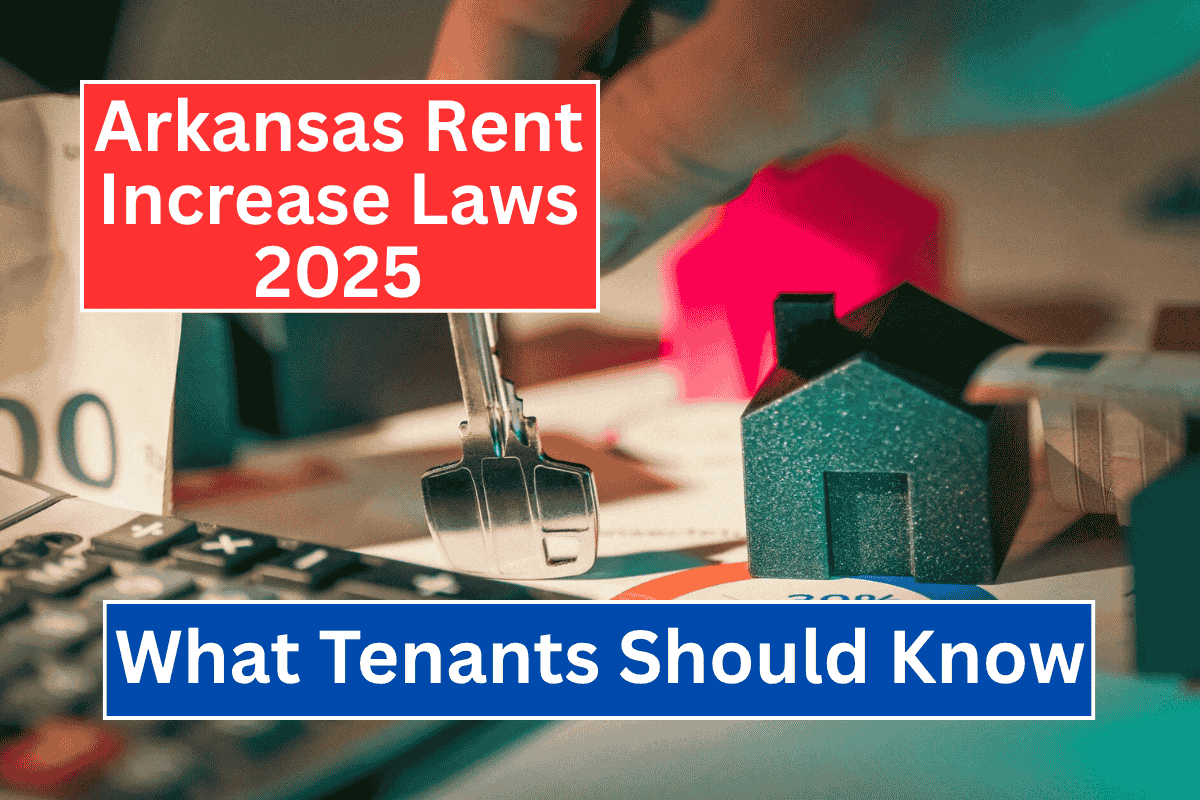Understanding rent rules is important for anyone renting a home in Arkansas. In 2025, knowing your rights as a tenant can help you avoid problems with your landlord. Arkansas is known for being more landlord-friendly than other states, but renters still have protections.
This guide explains everything you need to know about rent increases, lease agreements, evictions, repairs, and tenant rights in Arkansas.
What Are Your Rights as a Renter in Arkansas?
As a renter in Arkansas, you have certain rights under the law. These include:
Right to a Safe Home
Landlords must keep your home safe and livable. That means working plumbing, electricity, heating, and no serious damage or pest problems.
Getting Your Deposit Back
After you move out, your landlord has 60 days to return your security deposit. If they keep part of it, they must give you a written list of why.
Notice Before Rent Goes Up
If you rent month-to-month, landlords must give you a 30-day written notice before they raise your rent.
Protection from Discrimination
You cannot be denied housing based on race, religion, gender, disability, or family status. If this happens, you can file a complaint.
You are also responsible for paying rent on time, keeping your place clean, and following the rules in your lease.
What Landlords Must Do in Arkansas
Even in a landlord-friendly state like Arkansas, property owners have duties:
Keep the Property Safe
Landlords must maintain basic health standards and make sure things like heating and plumbing work properly.
Follow the Law During Evictions
They cannot lock you out or shut off your utilities to make you leave. They must go through the court process.
Stick to the Lease Agreement
Once they sign a lease, landlords must follow it. They cannot suddenly raise the rent or change the rules.
Rent Increases in Arkansas in 2025
In Arkansas, there’s no rent control law. That means landlords can raise the rent as much as they want—as long as they give proper notice. If you’re on a month-to-month lease, they must give you 30 days’ notice in writing before raising the rent.
Fixed-term leases (like one-year leases) usually can’t be changed until the term ends, unless the lease says otherwise.
How the Eviction Process Works
Reasons You Can Be Evicted
Landlords may evict you for not paying rent, damaging the property, breaking lease rules, or staying after the lease ends.
Steps in the Process
- You’ll get a 3-day notice to pay rent or move out.
- If you don’t, the landlord can take you to court.
- A judge will hear both sides and may issue an order for you to leave.
- If you still don’t go, the sheriff can remove you.
You may fight an eviction if you weren’t properly notified or already paid your rent.
Arkansas Security Deposit Rules
There’s no state limit on how much a landlord can charge for a deposit, but they must:
Return it within 60 days after you move out
Give you a written list of any costs they take out
If they don’t follow these rules, you can take them to court and ask for double the deposit back.
Lease Agreements and Ending Your Lease
Leases Are Important
They explain rent amounts, late fees, repairs, pets, and when the lease ends. Always read before signing.
Ending or Renewing a Lease
Month-to-month leases need a 30-day written notice to end. Fixed-term leases end on their date unless renewed.
Rent Raises
Rent can only be raised after the lease ends, unless the lease allows increases during the term.
Repairs and Maintenance: Who’s in Charge?
You Must
Keep your place clean
Tell the landlord about issues like leaks
Replace things like lightbulbs or batteries
Your Landlord Must
Fix major problems
Follow local safety rules
Handle pest problems (unless you caused them)
If they ignore repair requests, you can file a complaint with housing officials.
Fair Housing Rights
Discrimination in housing is illegal. A landlord cannot treat you unfairly because of your race, religion, gender, disability, or because you have children. If this happens, contact the Arkansas Fair Housing Commission.
What to Do if You Have a Problem With Your Landlord
Try to Talk First
Many issues can be fixed just by talking to your landlord calmly and respectfully.
Use Mediation
Some Arkansas cities offer free or low-cost help to solve problems outside of court.
Keep Records
Save texts, emails, photos, and letters.
Get Legal Help
A lawyer can explain your rights and help with serious issues.
In 2025, Arkansas renters still face challenges, especially since the state is landlord-friendly. But you still have key rights—like fair notice before rent increases, safe housing, protection from unfair treatment, and proper eviction procedures.
By knowing your rights and responsibilities, keeping good records, and speaking up when needed, you can avoid many common rental problems.












